
Politics
19:52, 20-Mar-2018
Highlights of China's longest legislative session
By Wang Lei
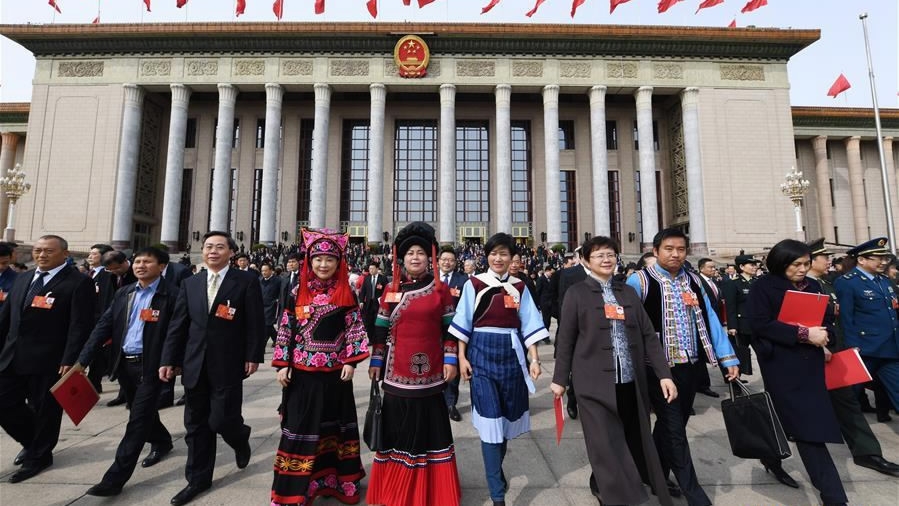
Li Zhanshu, newly-elected chairman of the Standing Committee of the 13th National People's Congress (NPC), China's top legislature, announced the closing of the first session of the 13th NPC on Tuesday.
Starting from March 5, this year's NPC session lasted 16 days and was the longest in decades. As China celebrates the 40th anniversary of its landmark reform and opening-up in 2018, reform was among the top themes of the session.
Nearly 3,000 legislators saw the reshuffle of the country's top leadership, the adoption of an amendment to the Constitution, a massive restructuring plan of the State Council and a supervision law, and the creation of a supreme supervisory organ.
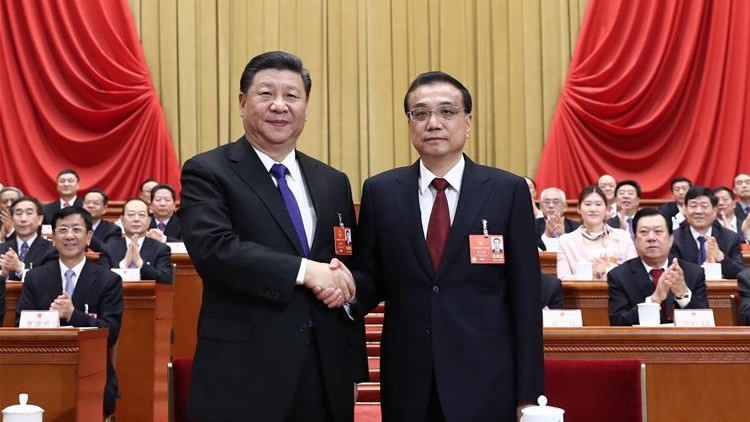
The deputies also approved work reports of the government, the 12th NPC Standing Committee, the Supreme People's Court and the Supreme People's Procuratorate, as well as the country's 2018 national economic and social development plan and the central and local budgets for 2018.
A total of eight plenary meetings and 16 press conferences were held, many of which were broadcast live, showing the growing transparency of China's politics and policies.
President Xi starts second term
It was the first session of the country's top legislature after the 19th National Congress of the Communist Party of China (CPC) last October. Xi Jinping, general secretary of the CPC Central Committee, was elected Chinese president during the session, starting his second five-year term as the head of state.

From March 5 to 12, Xi joined five panel discussions with the legislators and commented on a wide range of issues, including high-quality development, innovation, rural vitalization, the fight against corruption and military-civilian integration.
At the closing meeting of the session on Tuesday, he called for all efforts to tackle the challenges ahead and realize the Chinese dream of national rejuvenation.
Other leadership positions were also reshuffled. Li Keqiang stays as the premier of the State Council – the head of government, Li Zhanshu succeeded Zhang Dejiang as the top legislator, and four new vice premiers were appointed, including Han Zheng, Sun Chunlan, Hu Chunhua and Liu He.
Wang Qishan, 69-year-old former secretary of the CPC Central Commission for Discipline Inspection (CCDI), became China's vice president.
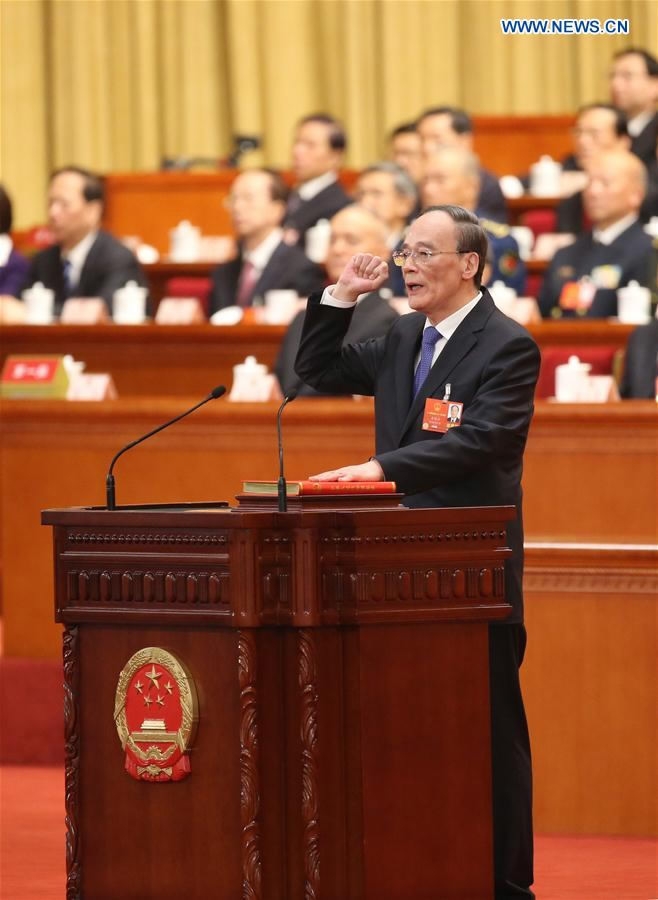
Wang Qishan takes an oath of allegiance to the Constitution in the Great Hall of the People in Beijing, March 17, 2018, after being elected vice president of China. /Xinhua Photo
Wang Qishan takes an oath of allegiance to the Constitution in the Great Hall of the People in Beijing, March 17, 2018, after being elected vice president of China. /Xinhua Photo
Yang Xiaodu, deputy secretary of the CCDI and former minister of Supervision, was elected director of the newly-formed National Supervisory Commission.
Yi Gang was endorsed as the new governor of the central bank, following the retirement of his predecessor Zhou Xiaochuan.
For the first time in China's history, the leaders took public oaths of allegiance to the Constitution in Great Hall of the People in Beijing.
Constitutional revision
The NPC passed an amendment to the Constitution on March 11. It was the first time in 14 years that China's Constitution was amended.

Xi Jinping Thought on Socialism with Chinese Characteristics for a New Era and the Scientific Outlook on Development were added into the Constitution, so was a sentence stressing the Party's leadership: "The leadership of the Communist Party of China is the defining feature of socialism with Chinese characteristics."
The expression that the president and vice president of China "shall serve no more than two consecutive terms" was removed.
The revised Constitution has defined the role of supervisory commissions as a new state organ. Listed together with administrative, judicial and procuratorial organs, the supervisory commissions independently exercise their power of supervision and are not subject to interference by any administrative organ, public organization or individual.
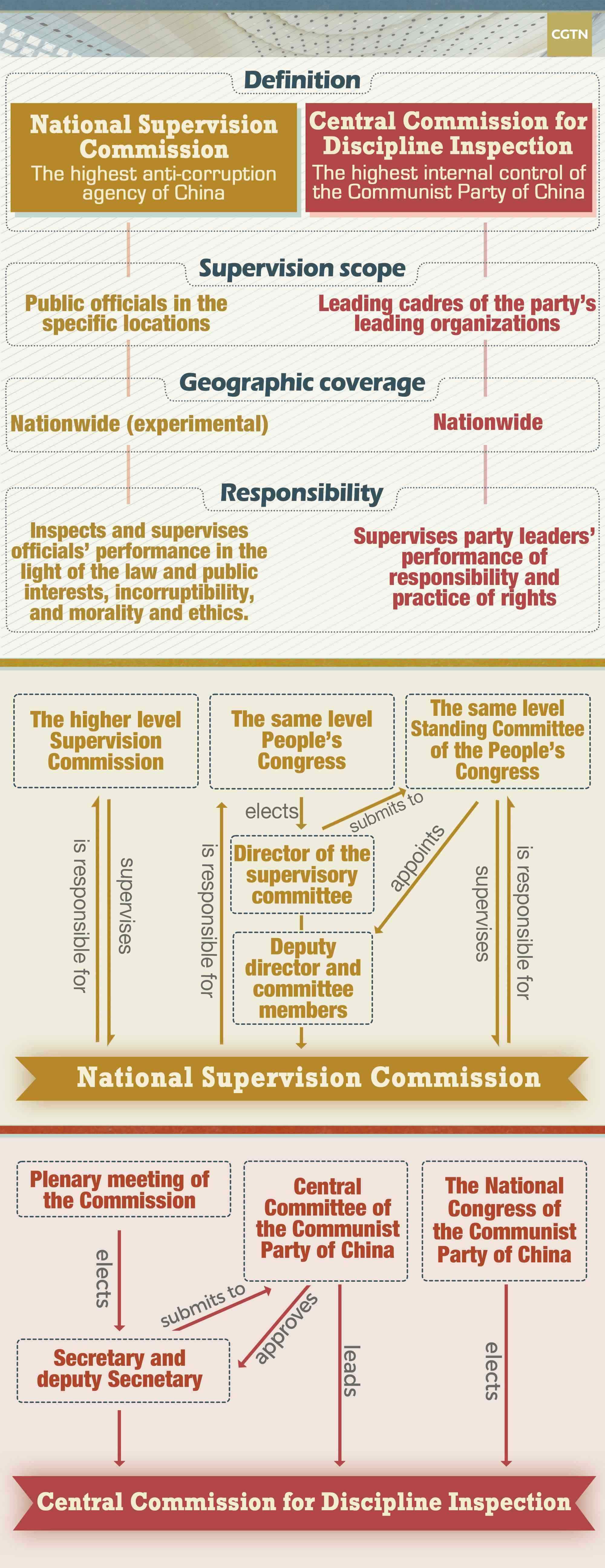
The reform is aimed at supervising everyone in the public sector exercising public power, including those who are not members of the CPC and those not working in the government.
Cabinet restructuring
Another highlight of the legislative session was the drastic shake-up of the State Council, or China's cabinet, to make it better-structured, more efficient, and service-oriented.
According to the restructuring plan approved by the NPC, six new ministries and a commission will be created, including the Ministry of Natural Resources, the Ministry of Ecological Environment, the Ministry of Agriculture and Rural Affairs, the Ministry of Culture and Tourism, the National Health Commission, the Ministry of Veterans Affairs and the Ministry of Emergency Management.
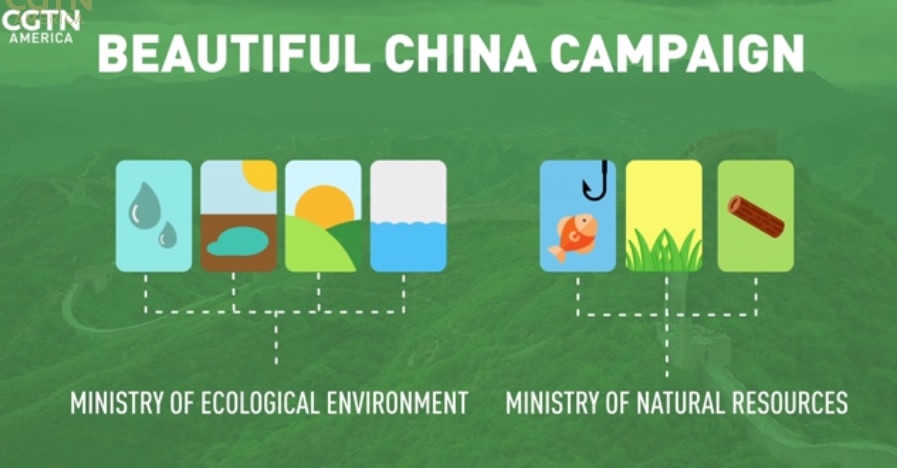
There will be also eight new administrations under the State Council, including the State Market Regulatory Administration, the State Radio and Television Administration, the China Banking and Insurance Regulatory Commission, the State International Development Cooperation Agency, the State Medical Insurance Administration, the State Grain and Reserves Administration, the State Immigration Administration and the State Administration of Forestry and Grassland.
Several existing bodies will be restructured or optimized, while entities such as the Ministry of Supervision, the Ministry of Land and Resources, the Ministry of Environmental Protection, Ministry of Agriculture, the Ministry of Culture and the National Health and Family Planning Commission will be dismantled.
1km

SITEMAP
Copyright © 2018 CGTN. Beijing ICP prepared NO.16065310-3
Copyright © 2018 CGTN. Beijing ICP prepared NO.16065310-3